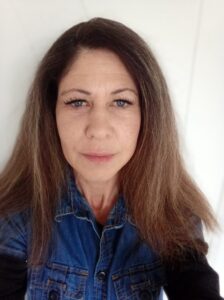
Annelie Garlington, Enterprise & Digital Lead Solution Architect for the Bank of Ireland, was recently introduced as the first female mentor within Iasa Global’s Structured Mentoring Program.
The program, which is based on the BTABoK framework, supports architects pursuing their CITA-F (Foundation) Core certification, providing them with expert guidance and career development opportunities.
Architects are encouraged to learn more and sign up for the program here: https://lnkd.in/eHH5KGYm
We also wanted to learn more about her career path and what attracted her to the program. Her interview follows:
Question: How did you get your start in technology?
Answer: I was inspired by my parents, encouraging us (we are three girls) to follow our dreams and not shy away from mathematics and sciences. I started as a COBOL developer late 90’s and never stopped learning since.
Q: Did you have any mentors along the way, and who were they?
A: I had informal mentors only, up until I sat the CITA-P certification, with Dennis Mulder as my mentor. Christina Ives would stand out as someone that progressed my career as a woman in IT and as a solution architect. Riaan Dreyer taught me not to drop the wrong ball because balls have to be dropped sometimes. Thomas Evje had a huge impact on me as a person given his empathy and patience under pressure.
Q: What is your favorite part of your current job?
A: Facing different challenges and successes weekly. The variety and excitement of the unknown. Teamwork and helping others to see their blindspots, and celebrate their success when they do realize how to accelerate, and what to unlearn.
Q: Why is being a mentor to other women important to you?
A: The lack of female mentors. Anybody should be able to identify with whom they want to get guidance from. I want to break the ice and ensure other women sitting a mentorship with myself is empowered and able to mentor as well, if she so wishes.
Q: What is the key to being an effective mentor?
A: Empathy, and going to the level of the mentee and build from there. Focus on people’s strengths so that they become aware of their weaknesses and identify what it is they should focus on more. Patience is key. And the ability to share knowledge effectively. I know a lot of people with a lot of knowledge, but they are unable to share the knowledge to the extend where someone could internalize it successfully.
